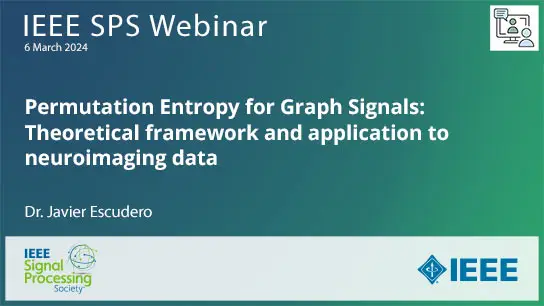-
Members: FreeSPS
IEEE Members: $11.00
Non-members: $15.00Length: 01:28:22
26 Jan 2022
In his seminal paper, Dr. Ronald Mahler not only developed the Probability Hypothesis Density (PHD) filter, but also detailed the Random Finite Set (RFS) framework for multi-object systems. These complex dynamical systems, in which the number of objects and their states are unknown and vary randomly with time, have a wide range of applications from surveillance, computer vision, robotics to biomedical research. Although popular in multi-object tracking (MOT), the PHD filter is a multi-object localization filter, not a MOT filter. This talk provides an overview of the PHD filter and how the same RFS framework can be used to address multi-object trajectory estimation. By using labels to distinguish individual trajectories, this approach admits MOT filters that alleviate integration over multiple scans and enables modeling/estimation of ancestry for spawning objects. Labeled RFS posterior/filtering densities are closed under truncation and admit analytic truncation error?critical for numerical approximations. In practical terms, labeled RFS solutions are numerically efficient, alleviating the key computational bottlenecks in the number of objects/measurements, number of sensors, and number of scans.


